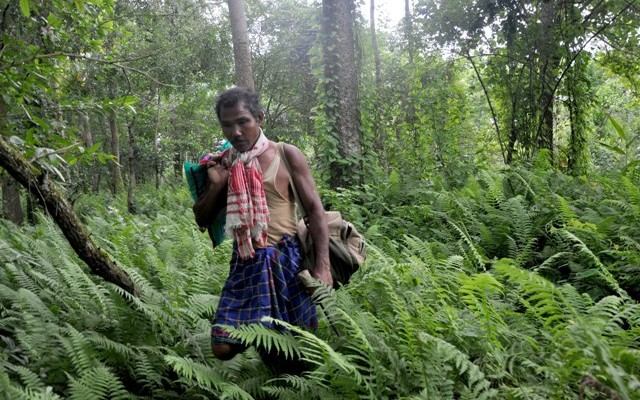Eerder kwam voorbij hoe ecosystemen hersteld worden in het Midden Oosten en in Afrika. In dit deel een prachtvoorbeeld uit India. Jadav Payeng plante hier een groot stuk bos waar inmiddels neushoorns, olifanten en Bengaalse tijgers leven. Zijn succesvolle werk heeft hem de titel – Forest Man – opgeleverd. In deze documentaire vertelt hij zijn verhaal.
He started working on the forest in 1980 when the social forestry division of Golaghat district launched a scheme of tree plantation on 200 hectares at Aruna Chapori situated at a distance of 5 km from Kokilamukh in Jorhat district. Molai was one of the labourers who worked in that project which was completed after five years. He chose to stay back after the completion of the project even after other workers left. He not only looked after the plants, but continued to plant more trees on his own, in an effort to transform the area into a forest.
The forest, which came to be known as Molai forest, now houses Bengal tigers, Indian rhinoceros, over 100 deer and rabbits besides apes and several varieties of birds, including a large number of vultures. There are several thousand trees, including valcol, arjun (Terminalia arjuna), ejar (Lagerstroemia speciosa), goldmohur (Delonix regia), koroi (Albizia procera), moj (Archidendron bigeminum) and himolu (Bombax ceiba). Bamboo covers an area of over 300 hectares.
A herd of around 100 elephants regularly visits the forest every year and generally stay for around six months. They have given birth to 10 calves in the forest in recent years.
His efforts became known to the authorities in 2008, when forest department officials went to the area in search of a herd of 115 elephants that had retreated into the forest after damaging property in the village of Aruna Chapori, which is about 1.5 km from the forest. The officials were surprised to see such a large and dense forest and since then the department has regularly visited the site.
A few years back, poachers tried to kill the rhinos staying in the forest but failed in their attempt due to Molai who alerted department officials. Officials promptly seized various articles used by the poachers to trap the animals.
——
Hiermee wordt voor de derde keer aangetoond dat grootschalig ecosysteem herstel op verschillende continenten mogelijk is en via simpele methoden en technieken tot stand kan worden gebracht. Op het moment dat meer en meer mensen deze praktische voorbeelden volgen en in de voetsporen treden van deze pioniers dan kunnen we wereldwijd veel van onze gedegradeerde ecosystemen weer herstellen en ze bewoonbaar maken voor mens en dier.
Op de hoogt blijven van nieuwe berichten? Like ons op facebook en/of volg ons op Twitter!
Een nieuw gezichtspunt leren kennen, iets geleerd en/of gelachen? Overweeg een donatie/vrijwillig abonnement.
Aanverwante artikelen en informatie
-) Ecosysteem herstel is simpel – deel 1
-) Ecosysteem herstel is simpel – deel 2
-) Roeland Lelieveld vergroent Kenia
-) Website Permacultuur Nederland
-) Website Eetbaar Nederland
-) Nederlandstalige facebookgroep over permacultuur (6000+ leden)
-) Overige netwerken en platformen van Permacultuur in de Nederlandse taal
-) De 7 lagen begroeiing van een eetbare bostuin
-) Het belang van gezonde, levende gronden
-) Bouw je eigen geodome broeikas
-) Zaden en plantenruilsysteem van en voor alle Nederlanders

